We now offer the cheapest Rock Dust in the UK
As of this sunny morning here in Wales we are now offering the cheapest Volcanic Rock Dust in easy to carry bags in the UK.
Tackling pollution, climate change, extinction and unemployment
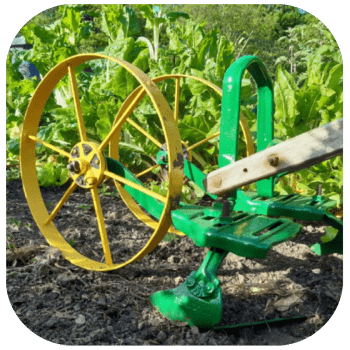
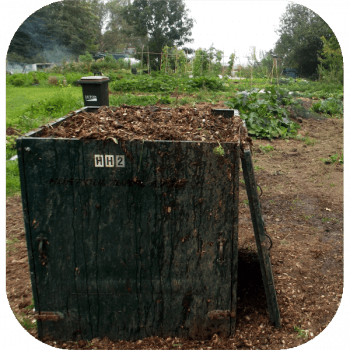

The Good Gardeners was started in 1962 and in 1968 became a registered charity. We have completed many years of research and development. It was all conceived when Ramsay Shewell Cooper (the original founder) returned from the war and was horrified at how many chemicals were being put onto our farms and gardens in order to grow crops successfully. Now, Richard Higgins, the current Director has made it an international concern as the demand everywhere is urging towards sustainability and how we can save wildlife and insects from extinction, and maintain high crop yields at the same time.
Our methods of ecological farming without chemicals and so much machinery are local solutions to global problems and can be started anywhere. The answer to these problems is to look locally rather than globally for our food supply. This employs people rather than highly technological machines that depend on fossil fuel extraction. Food produced this way is natural unadulterated and doesn’t need to be processed with preservatives and so many additives. It will help everybody build a strong natural immune system.

The Good Gardeners are the originators of the No-Dig system in the UK and have now moved into the International field to tackle hunger and poverty with their technology. Richard Higgins the current director, has brought in the Howard science and hence the HH product code numbering system and the HH-2 Horticultural System. This revolutionary system makes fertile land/gardens out of any abandoned/marginal land of any soil type by the means of making a top-quality organic fertiliser/soil conditioner that is so powerful it need only be added to the surface of the soil to get the desired results. This greatly reduces the need for expensive mechanical cultivation and completely eliminates the need for chemicals. The result is that carbon emissions are greatly reduced and the nutritional content of the food produced greatly increased.
The system sidesteps the need for ploughing and the need for any chemicals or weed killers in the farming system. With the increased soil warmth, inproved tilth and soil fertility you can germinate faster and easily generate your own crop varieties by successive sowing and seed collecting without the need for any kind of genetically modified seeds (which rely on chemicals to control the weeds). A massive increase in pest and disease resistance is the result, a definate increase in food security, and the all important creation of employment for all.
Our method of DRY sanitation, HH-3, also developed directly from the work of Sir Albert Howard, also safely allows another waste stream to be processed and used to replenish marginal or exhausted land. Unlike the recycling of mainstream sewage from towns and cities, like that in the UK, this system prevents the addition of heavy metals from entering the system and thus the food chain. Our HH-3 toilet system in conjunction with the HH-2 prcessors prevents the pollution of drinking and irrigation water here and in developing countries by eliminating leachate from pit latrines, sewage ponds and runoff from animal manure that is so common in the UK.
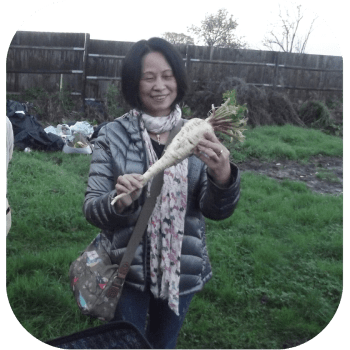
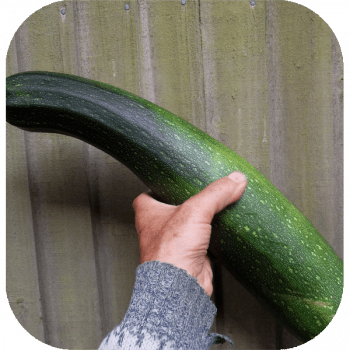
POLLUTION CONTROL
The current disaster of polluting our UK waterways with agricultural run off is an unprecedented disaster and the Good Gardeners are currently challenging the authorities concerned with our solution to solving this problem. The carbon negative effects of using oil driven machinery in such scale up projects is far out weighed by the environmental impacts of our end product HH-4.
“The sign of an advanced agriculture is that there is no pollution – only production.” Richard Higgins, Chairman of Good Gardeners
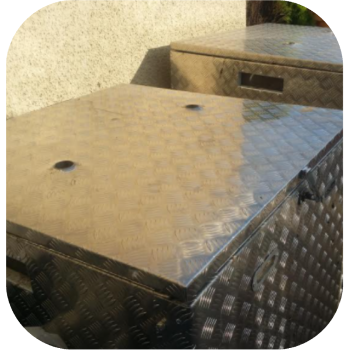
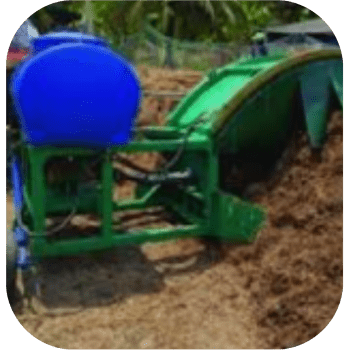
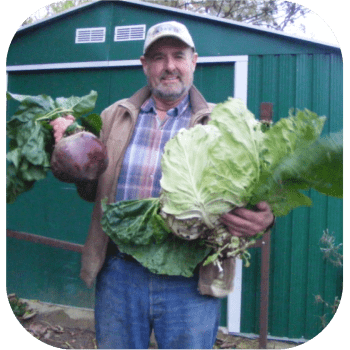
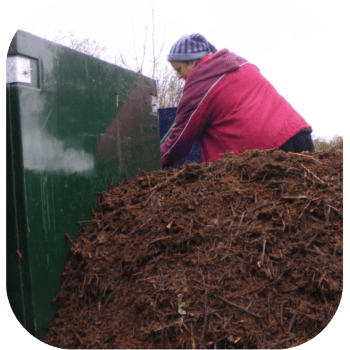

By harvesting what most people call waste, that usually ends up in landfill, or bio digestors YOU can manufacture in 90 days a world class fertiliser that is second to none. The end product, HH-4, stops slugs, snails and caterpillars and countless other agricultural problems without the use of any other technology, Entimology etc., With scientific trials over many years we have proven that by facilitating soil organisms correctly you can generate your own fertiliser and soil conditioner that acts as a pesticide as well. It is all possible with the HH-2 equipment pictured here. Used in conjunction with our Biochar Burner YOU can introduce Biochar and activate it in the 90 day operational process. This is a revolution in farming and gardening
Good Gardeners’ seed banks can be established anywhere to enable schools, farmers and growers to establish their own food security.
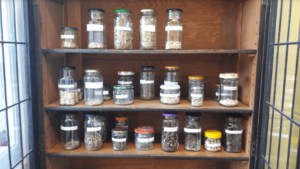
We are dedicated to training the No Dig method of food production because it improves the nutritional content of the food and holds valuable carbon and moisture in the soil. So this is soil building rather than soil depleting as is so often the case with conventional agriculture. Ploughing over the soil, continually mono cropping and applying chemical fertilisers all contribute to SOIL EROSION.
Inspecting the seed saving capacity of our crops with the now Rothamsted Director, Professor John Crawford
Over the last 25 years, Richard has lead research and tested the findings of Howard, particularly focusing on the fertility making practises that Sir Albert pioneered. Richard has brought Sir Albert’s work out of obscurity and is probably the foremost expounder of the Howard work on fertility making today. Finding that proper land fertility is about generating the right fungi and bacteria Richard has condensed the entire process into easy to operate fertility making system known as the HH-2 Horticultural System. The processing units that he has developed for the world market are indeed the first update on the standard New Zealand Compost Box in the last 100 years. Because these units are so effective at reliably reproducing the correct fungi and bacteria it means that you can purchase or sponsor this equipment for anyone wanting to grow food, especially where conditions are affected by climate change. Along with the package comes the basic equipment to operate the entire system and features our full colour ‘Operators Manual’ which can be translated into any language.
Due to the decline in soil fertility worldwide and the increase in more erratic unstable weather conditions, agriculture is facing a tsunami of unsolved pests and disease problems and unfavourable soil conditions. The increased use of chemical fertilisers, pesticides and heavy equipment further compounds these problems. The HH-2 system has been demonstrated to be a highly effective organic alternative for the control of all types of agricultural pests and diseases and is influencing Universities and research institutes in their research. This video Haiti Film II demonstrates the principles of this technology before the development of the HH-2 enclosed system.
Modern agricultural methods lead to high levels of carbon and moisture losses which increase the rate of soil degradation. The solution to many of these problems was first identified by Howard through his research, the results of which reached many countries. He was ahead of current carbon theories by first solving the problem of loss of soil moisture and carbon through ploughing. The HH-2 method of producing fertile topsoil produces the correct fungi and bacteria that enable rapid regeneration of all other required soil organisms so that even apparently ‘dead soil’ can again be brought back to life.
By the simple installation and operation of the HH-2 equipment and the scale up HH-1 system for larger scale agriculture, the right fungi and bacteria can again be introduced into any localised soil type. By also checking that there is good groundwater management, crops can again be grown and flourish on what may have been considered unusable or marginal land.
There is no comparable equipment to the HH-2 and its end product HH-4 anywhere in the world at the time of writing this web site. Therefore we are the originators of the system. With the interest generated from our two amalgamated websites, we have upgraded the charity to International status. Having completed surveys and scale-up trials in different countries…. Several universities are looking into our technology as the problems UK farmers are facing are not being solved. None have seen results akin to the effect HH-4 on any soil type and on any crop type
“Gardening should be more like farming and farming should be more like gardening” Richard Higgins, CEO Good Gardeners International
We work with incredible partners to develop and install our HH systems.

As of this sunny morning here in Wales we are now offering the cheapest Volcanic Rock Dust in easy to carry bags in the UK.
BBC Farming Today exposes the scandal of contaminated salad crops in the UK. Simple answer: Don’t use raw manure to produce your salad crops or
BBC Farming Today 8.6.24 ‘Don’t cut down all your surrounding weeds, nettles, vegetation etc, These are the home of hover flies an other pollinators.’ At
| Cookie | Duration | Description |
|---|---|---|
| cookielawinfo-checkbox-advertisement | 1 year | The cookie is set by GDPR cookie consent to record the user consent for the cookies in the category "Advertisement". |
| cookielawinfo-checkbox-analytics | 11 months | This cookie is set by GDPR Cookie Consent plugin. The cookie is used to store the user consent for the cookies in the category "Analytics". |
| cookielawinfo-checkbox-functional | 11 months | The cookie is set by GDPR cookie consent to record the user consent for the cookies in the category "Functional". |
| cookielawinfo-checkbox-necessary | 11 months | This cookie is set by GDPR Cookie Consent plugin. The cookies is used to store the user consent for the cookies in the category "Necessary". |
| cookielawinfo-checkbox-others | 11 months | This cookie is set by GDPR Cookie Consent plugin. The cookie is used to store the user consent for the cookies in the category "Other. |
| cookielawinfo-checkbox-performance | 11 months | This cookie is set by GDPR Cookie Consent plugin. The cookie is used to store the user consent for the cookies in the category "Performance". |
| elementor | never | This cookie is used by the website's WordPress theme. It allows the website owner to implement or change the website's content in real-time. |
| viewed_cookie_policy | 11 months | The cookie is set by the GDPR Cookie Consent plugin and is used to store whether or not user has consented to the use of cookies. It does not store any personal data. |
| Cookie | Duration | Description |
|---|---|---|
| mailchimp_landing_site | 1 month | The cookie is set by the email marketing service MailChimp. |
| Cookie | Duration | Description |
|---|---|---|
| _ga | 2 years | This cookie is installed by Google Analytics. The cookie is used to calculate visitor, session, campaign data and keep track of site usage for the site's analytics report. The cookies store information anonymously and assign a randomly generated number to identify unique visitors. |
| _gat_gtag_UA_203491877_1 | 1 minute | This cookie is set by Google and is used to distinguish users. |
| _gat_UA-203491877-1 | 1 minute | This is a pattern type cookie set by Google Analytics, where the pattern element on the name contains the unique identity number of the account or website it relates to. It appears to be a variation of the _gat cookie which is used to limit the amount of data recorded by Google on high traffic volume websites. |
| _gid | 1 day | This cookie is installed by Google Analytics. The cookie is used to store information of how visitors use a website and helps in creating an analytics report of how the website is doing. The data collected including the number visitors, the source where they have come from, and the pages visted in an anonymous form. |
| CONSENT | 16 years 4 months | These cookies are set via embedded youtube-videos. They register anonymous statistical data on for example how many times the video is displayed and what settings are used for playback.No sensitive data is collected unless you log in to your google account, in that case your choices are linked with your account, for example if you click “like” on a video. |
| Cookie | Duration | Description |
|---|---|---|
| IDE | 1 year 24 days | Used by Google DoubleClick and stores information about how the user uses the website and any other advertisement before visiting the website. This is used to present users with ads that are relevant to them according to the user profile. |
| test_cookie | 15 minutes | This cookie is set by doubleclick.net. The purpose of the cookie is to determine if the user's browser supports cookies. |
| VISITOR_INFO1_LIVE | 5 months 27 days | This cookie is set by Youtube. Used to track the information of the embedded YouTube videos on a website. |
| YSC | session | This cookies is set by Youtube and is used to track the views of embedded videos. |
| yt-remote-connected-devices | never | These cookies are set via embedded youtube-videos. |
| yt-remote-device-id | never | These cookies are set via embedded youtube-videos. |
| yt.innertube::nextId | never | These cookies are set via embedded youtube-videos. |
| yt.innertube::requests | never | These cookies are set via embedded youtube-videos. |
| Cookie | Duration | Description |
|---|---|---|
| cookies.js | session | No description available. |
| wp_woocommerce_session_7ef5404579515d013e9154529f907a7f | 2 days | No description |